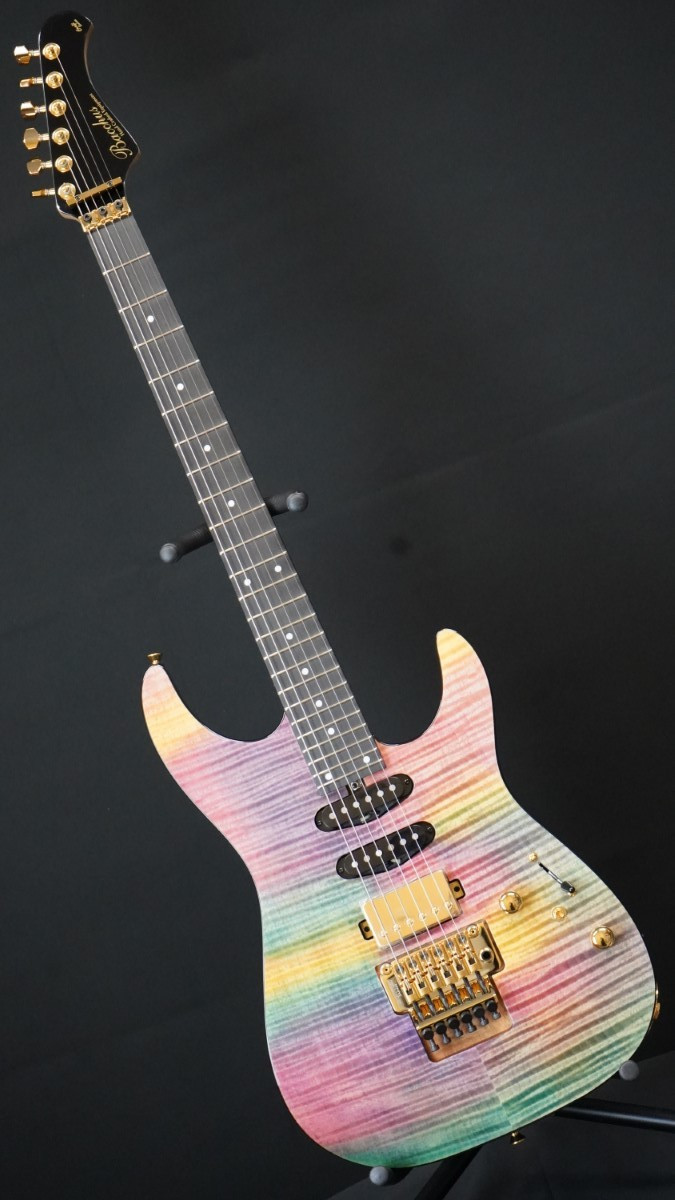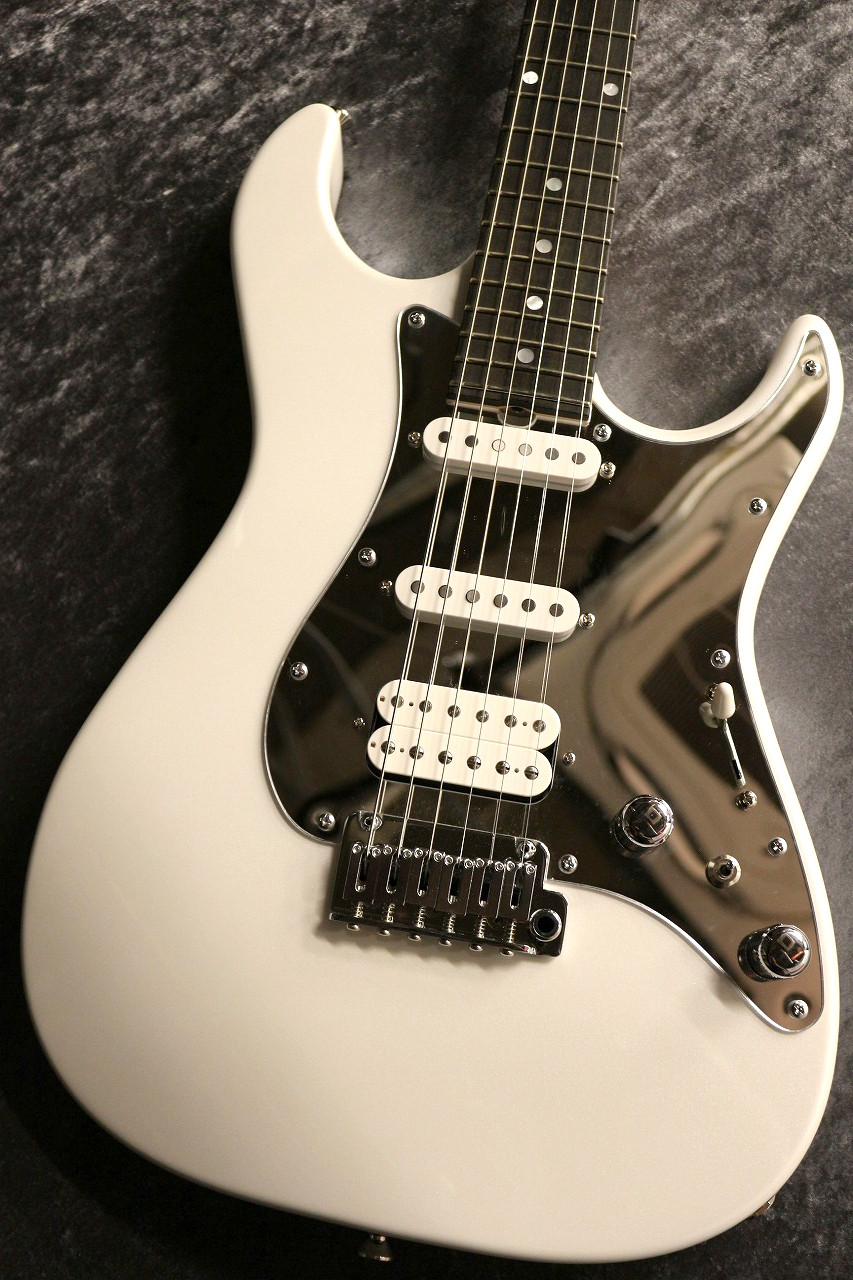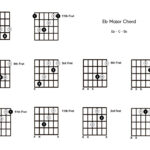For guitar players seeking high-quality instruments without breaking the bank, the world of Japanese-made guitars often represents a sweet spot. Renowned for their meticulous craftsmanship and attention to detail, guitars from Japan have earned a reputation for superior quality control, often surpassing instruments made in other parts of Asia. However, finding a Japanese-made guitar, particularly a versatile HSS superstrat, under the $1000 mark can feel like searching for a hidden gem.
Enter Vola Guitars. This brand has been generating buzz among guitarists, especially those in the market for a high-performance instrument without the premium price tag often associated with Japanese craftsmanship. The Vola OZ V3 MC model, in particular, has caught the eye of players seeking a top-tier superstrat without emptying their wallets. Priced around $860 in the US, the OZ V3 MC boasts impressive specs that seem almost too good to be true for a guitar in this range.
Handcrafted in Japan, the Vola OZ V3 MC features an alder body in a classic double-cutaway design, a hallmark of the superstrat style. The neck, a crucial element for playability, is carved from maple in Vola’s updated “Modern C” shape, promising both comfort and speed. The hardware is all Gotoh, a respected Japanese brand known for its reliability and precision, including Gotoh locking tuners and a Gotoh 510 tremolo system, features typically found on much more expensive guitars. Even details like a sculpted neck heel and a reverse headstock add to the guitar’s high-performance appeal. While the nickel frets might be a point of discussion for some, many players, especially those accustomed to acoustic guitars, find them perfectly comfortable.
The question naturally arises: how does Vola offer such a feature-rich, Japanese-made guitar at this price point? Are there compromises being made? One might wonder if the electronics or pickups are subpar to cut costs. Looking at the specifications, however, the Vola OZ V3 MC is equipped with Vola’s proprietary VHC humbucker in the bridge position and dual Vola VS single-coil pickups, suggesting a focus on quality components even in their own branded parts.
![]() Vola Guitars Logo
Vola Guitars Logo
The price discrepancy becomes even more apparent when comparing Vola to established brands like Ibanez. Similarly equipped Ibanez models made in Japan often reach prices closer to $2000. This raises questions about the role of brand prestige and dealer networks in pricing. Is Vola’s direct-to-consumer sales model, cutting out traditional retail channels, the key to offering such competitive prices? It’s well-known that dealers like Sweetwater and Guitar Center take a significant cut, which inevitably inflates the final price for consumers. Vola’s approach potentially bypasses these markups, allowing them to deliver high-quality Japanese instruments at a more accessible price.
While online reviews for Vola guitars are overwhelmingly positive, a degree of skepticism is understandable, especially when considering the prevalence of sponsored content in the guitar world. The original poster in the forum rightly points out the potential bias in YouTube reviews where guitars are often provided for free. This highlights the importance of seeking out unbiased opinions and doing thorough research before making a purchase.
However, the value proposition of Vola Guitars remains compelling. As the forum discussion points out, the $700-$800 price range is indeed where you start to see more Japanese-made guitar options, particularly Stratocaster-style instruments. Brands like FGN (FujiGen), Schecter Japan, and Bacchus also offer MIJ guitars in this general price bracket, providing further context for Vola’s pricing.
FGN, with models like the JOS2-FM, offers similar quality and features in the MIJ category around the $883-$1000 range.
 FGN JOS2-FM
FGN JOS2-FM
Schecter Japan also produces excellent MIJ guitars, though their models like the BH-1-STD24F/M tend to be a bit pricier, around $1107 retail and $1300 shipped to the US.
 Schecter BH-1-STD24F/M
Schecter BH-1-STD24F/M
Bacchus, part of the Deviser family of brands, which some speculate may also be the OEM for Vola, offers models like the IMPERIAL PRO FM/RL-ABALONE in a similar price range, further illustrating the competitive landscape of MIJ guitars around the $1000 mark.
 Bacchus IMPERIAL PRO FM/RL-ABALONE
Bacchus IMPERIAL PRO FM/RL-ABALONE
For those seeking the absolute pinnacle of Japanese guitar craftsmanship, boutique brands like Kino offer fully handmade MIJ instruments. The Sakura Yoshida signature Kino Stay, for example, comes in around $1400 USD shipped to the US, showcasing the higher end of the MIJ spectrum.
 Kino Stay Sakura Yoshida Signature
Kino Stay Sakura Yoshida Signature
In conclusion, Vola Guitars, particularly the OZ V3 MC model, presents a compelling option for guitarists seeking Japanese quality and craftsmanship without the inflated price tag. While further research and potentially trying the guitar in person is always recommended, the specifications and price point suggest that Vola is indeed offering a legitimate and highly competitive instrument in the MIJ market. The direct sales model appears to be a significant factor in keeping prices down, making Vola a brand worth serious consideration for players looking for exceptional value in a Japanese-made guitar.

